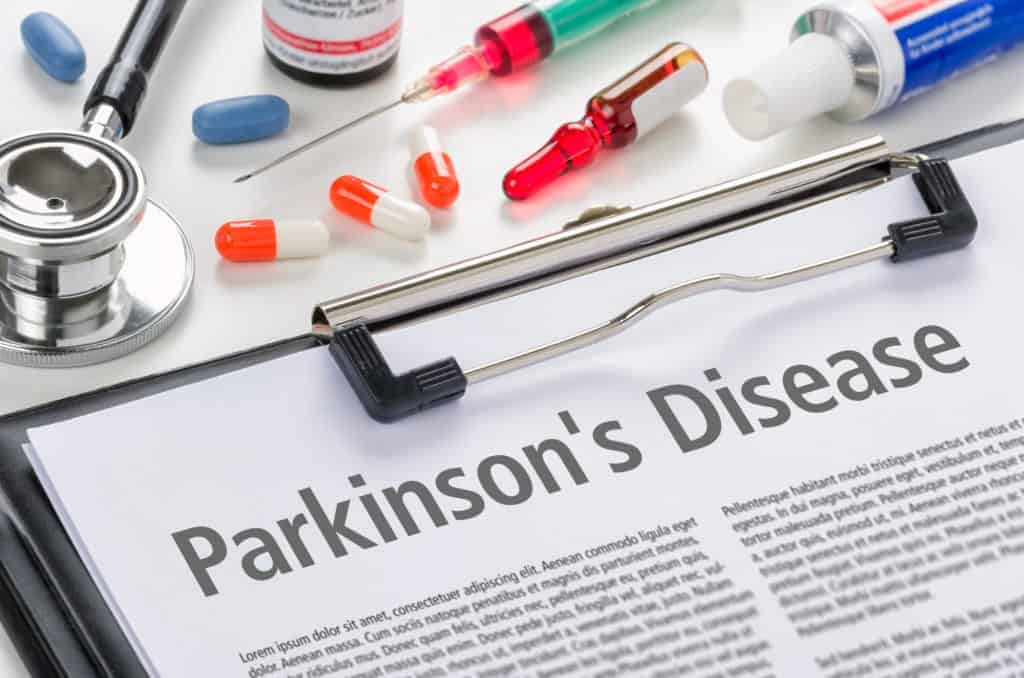The London Clinic, a private hospital and charity in the heart of the Harley Street Medical Area, will attend the exhibition to highlight one of their latest techniques – Deep Brain Stimulation (DBS).
DBS is a surgical procedure that involves implanting electrodes into the areas of the brain that control movement. These electrodes are then connected to a pulse generator via fine wires that is placed under the skin in the upper chest or stomach area. When the pulse generator (a device like a pacemaker), is turned on, it delivers precise electrical signals to the targeted area to modulate or disrupt abnormal signals that cause the motor symptoms of Parkinson’s
Parkinson’s
There is currently no cure for Parkinson’s, but drugs that increase or substitute for dopamine can help manage the symptoms in the early stages of the
Mr Erlick Pereira, Consultant Neurosurgeon, explains: “The London Clinic is the first private hospital in the UK to use the innovative Abbott InfinityTM DBS System to treat Parkinson’s
The Abbott Medical InfinityTM DBS system uses Bluetooth and iOS software, meaning the levels of stimulation from DBS can be adjusted with an external programmer to meet the patient’s specific needs. Patients are given an easy-to-use iPod controller that they can use to adjust their DBS settings within a pre-set range (set by their consultant), giving them greater control over their Parkinson’s
Patients with certain types of chronic pain and other movement disorders such as dystonia, essential tremor and epilepsy can also benefit from DBS when their medication is ineffective or results in intolerable side effects.
Dr Binith Cheeran, Consultant Neurologist, says: “Patients are carefully selected for DBS by multidisciplinary teams. Clinical nurse specialists and specialist physiotherapists also play a key role in the treatment and recovery of the patient.”
“As the symptoms of Parkinson’s
DBS is one form of neuromodulation, the alteration of nerve activity by electrical or pharmaceutical agents. The London Clinic also offers spinal cord stimulation to treat patients with chronic pain and dorsal root ganglion therapy for localised chronic pain. The London Clinic will be on stand to discuss the neuromodulation services and other pioneering therapies for a wide range of conditions at Arab Health 2018.
The Harley Street Medical Area is a collective of hospitals, clinics and specialists who deliver outstanding patient care through pioneering treatments and cutting-edge technologies. The Harley Street Medical Area Stand is a regular attender of Arab Health and will be located in the UK Pavilion on stand H7E30 – The London Clinic can be found within this stand.
The Arab Health Exhibition & Congress, the largest healthcare exhibition in the Middle East, is taking place from 29th January to the 1st February 2018, at the Dubai Convention and Exhibition Centre.
More info about Harley Street Medical Area
The Howard de Walden Estate is the guardian of the Harley Street Medical Area and has been supporting and nurturing medical excellence in this historic part of London for 200 years. The Harley Street Medical Area is a collective of hospitals, clinics and specialists who deliver outstanding patient care through pioneering treatments and cutting-edge technologies. The Harley Street Medical Area has over 5000 medical specialists and over 250 clinics working within 92 acres of Marylebone, central London. The Harley Street Medical Area brings together a community of medical professionals who provide access to the best medical treatments and services in the world and are at the forefront of advancing global medical practices in the City of London.
References
- Parkinson’s UK, Deep Brain Stimulation. Available at www.parkinsons.org.uk/information-and-support/deep-brain-stimulation [Accessed November 2017]
- Hickey, P., & Stacy, M. (2016). Deep Brain Stimulation: A paradigm shifting approach to treat Parkinson’s disease. Frontiers in Neuroscience, 10. doi:10.3389/fnins.2016.00173
- Dorsey, E., & Bloem, B. (2017). The Parkinson Pandemic – A Call to Action. JAMA Neurology. doi:10.1001/jamaneurol.2017.3299
- Feigin, V., Abajobir, A., Abate, K., Abd-Allah, F., Abdulle, A., & Abera, S. et al. (2017). Global, regional, and national burden of neurological disorders during 1990–2015: a systematic analysis for the Global Burden of Disease Study 2015. The Lancet Neurology, 16(11), 877-897. doi:10.1016/s1474-4422(17)30299-5
- NHS Choices, Parkinson’s disease. Available at www.nhs.uk/Conditions/Parkinsons-disease/Pages/Introduction.aspx [Accessed November 2017]
- NHS Choices, Parkinson’s disease causes. Available at www.nhs.uk/Conditions/Parkinsons-disease/Pages/Causes.aspx [Accessed November 2017]
- NHS Choices, Parkinson’s disease treatment. Available at www.nhs.uk/conditions/parkinsons-disease/treatment/ [Accessed November 2017]
Media Contacts
For more information or to request an interview with please contact:
Lisa Stone
DD: +44 20 7291 6070
Mobile: +44 7801 886 565
Email: lisa.stone@hdwe.co.uk
Julia Price:
DD: +44 (0) 7737 864878
Email: julia@juliaprice.co.uk
Digital Health Buzz!
Digital Health Buzz! aims to be the destination of choice when it comes to what’s happening in the digital health world. We are not about news and views, but informative articles and thoughts to apply in your business.

